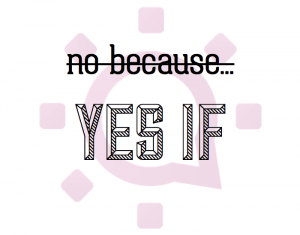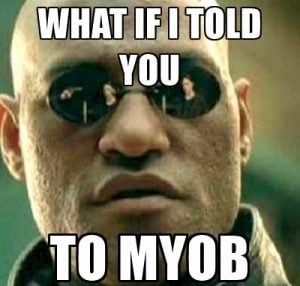Recruiting has changed. In the September 27, 2016 Ask The Headhunter Newsletter, a job applicant responds to a posting and gets a call from the cops.
Is this recruiting?
 Employers are so out of it that they’re not only putting up digital roadblocks against people they’re trying to attract — such as online application forms and video interviews — now they’re hiding in bunkers, barring the doors, and calling the cops on earnest job applicants.
Employers are so out of it that they’re not only putting up digital roadblocks against people they’re trying to attract — such as online application forms and video interviews — now they’re hiding in bunkers, barring the doors, and calling the cops on earnest job applicants.
A reader found this stunning episode on an Indeed discussion forum:
I recently applied to a job on Indeed and sent a follow up e-mail a few days later. About a week passed with no response, and I sent another e-mail, saying I would come by their office. They quickly sent a response saying they no longer had a position available. Twenty minutes later I got a phone call from the police. They complained that I threatened and harassed them. I denied it, and the cop said to not contact them again. The whole thing is almost unbelievable. I hate applying for jobs.
WTF?
Why doesn’t this employer just keep an armed guard posted at the door?
When you find a job posting online, can you get arrested for showing up in person at a company to apply? I’m not a lawyer, and I won’t touch that question, but such conflicted behavior and mixed signals sent by employers reveal just how dysfunctional recruiting has become.
Applying through the front door
More than once, I walked into companies I wanted to work for and gave my resume to a receptionist. Sometimes a manager would come out to talk to me. Or a personnel clerk would appear briefly. When no one appeared, I’d chat up the receptionist, collect some company literature to educate myself, and go home. Worst case, I’d write the employer off. On to the next.
If employers are afraid of who comes in the front door, why are they recruiting? Why are they in business? What if a customer shows up unannounced? Does the sales department send in its dogs?
WTF, indeed. I know many people who have taken the time and trouble to go to an employer’s office to demonstrate how serious they are about getting a job. But recruiters have so dehumanized job applicants they’re trying to attract that they no longer know how to welcome them.
Hiding from the applicants
Employers solicit such staggering numbers of people that they’re are afraid of who appears. The only way to process the incoming rush is to dehumanize and render people into database morsels. (See “How HR optimizes rejection of millions of job applicants.”) And to hide.
 This cannot be reconciled with the idea that an employer is trying to attract you. When you’re an abstraction in a database — a mess of keywords — the assumption is that you’re to be avoided and feared, either as a waste of time or, in this case, as a physical threat.
This cannot be reconciled with the idea that an employer is trying to attract you. When you’re an abstraction in a database — a mess of keywords — the assumption is that you’re to be avoided and feared, either as a waste of time or, in this case, as a physical threat.
Lest someone suggest it’s inappropriate to show up at a company after submitting a resume, keep in mind that at some point you’ll be invited for an interview at a bricks-and-mortar office that has a front door. If the front door is a locked bunker, then the job applicant who posted that story would likely just walk away — probably disgruntled. But if the front door is open for business, then it’s no more inappropriate for a job applicant to show up than it is for a customer to show up to buy something.
Recruiting from the panic room
So what does this incident mean? We must assume the job applicant did nothing wrong or threatening. After all, this person was applying for a job. They want to impress the employer — not hurt anyone — hence the visit to the office. (On the flip side, does a job applicant assume a murderous psychopath has lured them to an interview?)
When an employer worries for its safety or fears who’s going to show up, that tells us there’s something fundamentally wrong with popular methods of recruiting. It’s pretty clear that the fear and worry stem from soliciting teeming hordes of applicants that employers don’t really want. Depersonalizing and demonizing them only adds to the distrust — we naturally fear the unknown.
This incident is perhaps the most stunning evidence that the online employment system companies rely on is inherently twisted and warped. (See “Employment In America: WTF is going on?”) This job seeker’s experience reveals a panic-room mentality, where employers huddle and hide behind locked doors and impenetrable applicant tracking systems. It highlights one recruiting perversion after another:
- Advertise a healthy work environment — but reveal your company’s paranoid culture.
- Proclaim a desire to find great people — but treat applicants like they’re psychopathic marauders.
- Solicit job applicants — then tell them there’s no job.
- Open your company to the talent — then call the cops when the talent arrives.
- Talk about how people are your most important asset — but only let digital profiles and applications in the door.
The problem is not that a company called the cops on a job applicant it attracted. That’s merely a symptom. The problem is that the highly automated recruiting system our economy depends on can’t deal with people.
What kinds of contradictory messages have you gotten from employers? What’s the most bizarre experience you’ve had when applying for an advertised job?
: :


 Question
Question Question
Question Question
Question I passed all of the pre-employment testing in the 95th to 100th percentile. I cleared the background, credit, reference, education and employment verifications and was told I was “cleared” as per the conditions of my signed offer letter.
I passed all of the pre-employment testing in the 95th to 100th percentile. I cleared the background, credit, reference, education and employment verifications and was told I was “cleared” as per the conditions of my signed offer letter. In the end, I win because I still have an amazing job (I am currently employed and not unhappy) and I have the opportunity to secure a position with an organization that will not play games with me after already determining I meet their requirements.
In the end, I win because I still have an amazing job (I am currently employed and not unhappy) and I have the opportunity to secure a position with an organization that will not play games with me after already determining I meet their requirements. I recently had an experience with a headhunter(?) I do not know who sent me an unsolicited pitch to look at a job listing in my field in my city. The pitch was sent via LinkedIn with an attachment. I do not open attachments from people I do not know. This brings up the issue of cyber security in dealing with any kind of pitch about a job.
I recently had an experience with a headhunter(?) I do not know who sent me an unsolicited pitch to look at a job listing in my field in my city. The pitch was sent via LinkedIn with an attachment. I do not open attachments from people I do not know. This brings up the issue of cyber security in dealing with any kind of pitch about a job. Did I say check references?
Did I say check references? Back in July I applied for a design job with Connections Education. I got an email from their HR rep:
Back in July I applied for a design job with Connections Education. I got an email from their HR rep: You’ve got rare, desirable skills — but are you ready for video interviews? Maybe what makes you rare is how hard you work for your employers. In any case, you apply for a job.
You’ve got rare, desirable skills — but are you ready for video interviews? Maybe what makes you rare is how hard you work for your employers. In any case, you apply for a job. Another robot “views” your video and algorithms scan the sounds and movements you make in the video.
Another robot “views” your video and algorithms scan the sounds and movements you make in the video. Interview videos infomercial claim #1
Interview videos infomercial claim #1 “Recruiters at IBM and Cigna said they evaluate candidates based on how well the person communicates his/her thought process, whether the person answers all parts of the question—and whether he/she makes eye contact.”
“Recruiters at IBM and Cigna said they evaluate candidates based on how well the person communicates his/her thought process, whether the person answers all parts of the question—and whether he/she makes eye contact.” “Taking robo-recruiting one step further, some HireVue customers have an algorithm review the video interviews for them. Using data about the skills and attributes companies are seeking for a given role, a program called HireVue Insights scans videos for verbal and facial cues that match those skills then ranks the top 100 applicants.”
“Taking robo-recruiting one step further, some HireVue customers have an algorithm review the video interviews for them. Using data about the skills and attributes companies are seeking for a given role, a program called HireVue Insights scans videos for verbal and facial cues that match those skills then ranks the top 100 applicants.”
 Nick’s Quick Reply
Nick’s Quick Reply